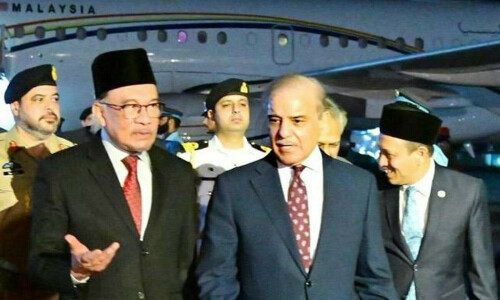ISLAMABAD: The National Electric Power Regulatory Authority (Nepra) on Monday notified about Rs1.114 per unit increase in electricity rates for ex-Wapda Distribution Companies (Discos) to generate about Rs17 billion additional revenue.
The increase was allowed on account of monthly fuel cost adjustment (FCA) for electricity consumed in September and would be charged to consumers in current billing month (December). The tariff increase will be applicable to all consumers except lifeline consumers i.e. 50 units per month.
The regulator had conducted the public hearing on the subject on Oct 29 and questioned the justification for furnace oil and diesel-based expensive power generation. It said that it would announce its judgement after a detailed analysis of the record and data as Discos had demanded Rs1.36 per unit increase in electricity rates.
The increase will generate Rs17bn additional revenue
In its order issued on Monday, Nepra said, prima facie, certain efficient power plants were not fully utilised and instead energy from the power plants based on costlier RFO (residual fuel oil) and HSD (high speed diesel) was generated to the tune of over Rs10.834bn. This included Rs9.49bn on account of RFO and Rsl.3bn from HSD-based power plants during the month of September 2020.
The regulator noted that had this energy been generated from other cheaper sources like RLNG (regasified liquefied natural gas) or coal, this would have resulted in reduction in total fuel cost claimed by the Central Power Purchasing Agency (CPPA). The regulator had been directing the National Power Control Centre/National Transmission & Dispatch Company (NPCC/NTDC) & CPPA repeatedly to provide complete justification in this regard, to the satisfaction of the regulator and submit complete details for deviation from economic merit order (EMO), showing hourly generation along with the financial impact for deviation from EMO.
The order said although NPCC/NTDC provided details of plants operated on RFO & HSD with reasons thereof but regulator’s own in-house analysis workings was carried out to work out the financial impact of EMO deviations. This assessment found the net amount deductible from the overall claim due to EMO deviation owing to technical constraints and underutilisation of efficient plants at Rs2.077bn. Therefore, the regulator decided not to allow the said amount in the fuel cost adjustment until NPCC / NTDC and CPPA-G provide complete details along with complete justification.
After incorporating the said adjustments, the regulator has allowed the Rs1.1138 per unit fuel cost, including costs arising out due to application of various factors as provided in the respective PPAs of the Power Producers and claimed by CPPA-G in its monthly FCAs.
However, the amount arising out of application of above PPA factors, for the six RFO-based IPPs, incorporated under 2002 Power Policy, has been allowed on a provisional basis and shall be subject to adjustment, based on the final outcome of the court proceedings against the RFO-based IPPs.
According to CPPA bills, total energy generation from all sources in September 2020 was recorded at 13,103 GWH. The total cost of energy generated amounted to Rs53.9bn, having an average per unit fuel cost of Rs4.11 per unit. About 12,722 Gwh were delivered to the Discos for Rs53.56bn, at average cost of Rs4.21 per unit. About 366Gwh units or almost 2.50pc were reported as transmission losses.
The hydropower generation contributed 37.18pc to the overall power production in September at zero fuel cost while about 17.42pc contribution came from coal-based power plants at the fuel cost of Rs6.03 per unit.
The LNG-based power generation stood 21pc at the cost of Rs6.79 per unit. The local gas-based power production stood at 10pc at the rate of Rs6.77 per unit. The RFO-based power generation stood at 5.82pc at a cost of Rs12.45 per unit while HSD-based power generation came in at 0.55pc at a rate of Rs18.73 per unit. The nuclear energy contributed 5.17pc electricity at Re1 per unit.
Published in Dawn, December 15th, 2020















































